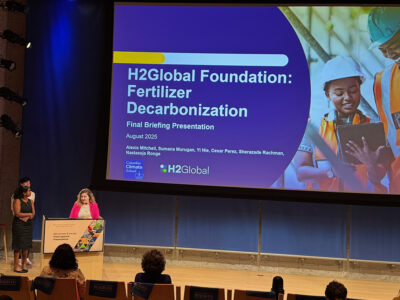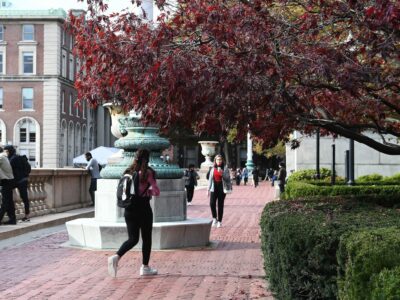
Earlier in the semester, we spoke with MPA in Environmental Science and Policy (MPA-ESP) student Josh Garrett, about his role as a volunteer policy analyst at the non-profit environmental law firm, Earthjustice. Josh’s main task as an intern focused on hydrofracking initiatives is doing extensive legal research to help formulate legal strategies as they relate to existing environmental policies.. Josh’s most recent project was to identify chemical ingredients in hydraulic fracturing fluid and research their suspected and known health effects. Josh’s favorite part of his internship projects has been seeking out the repositories of information regarding hydrofracking and presenting his findings to his supervisors – a task he believes has greatly helped him with his memo writing skills.
“The ESP program gave me a very strong foundation when it comes to memo writing, but I think that having to write these memos outside of the academic setting has forced me to tighten up my style,” says Josh. “Since my supervisors are so busy with many other cases besides the ones that I am working on, I try to include only the most relevant information. “My ESP classmates and I used to joke, ‘who reads memos anymore??; Through my work at Earthjustice, I have found that memos remain as relevant as ever in the legal world and, I’d be willing to bet, in other sectors too.”
Josh will continue to perfect his legal writing skills in his next project, which is to investigate Environmental Protection Agency (EPA) policies and legal precedents relating to animal waste discharged from large agricultural feedlots.
Students in the MPA in Environmental Science & Policy program enroll in a year-long, 54-credit program offered at Columbia University’s School of International and Public Affairs, in partnership with the Earth Institute. Throughout this one year program, students are immersed in courses that combine Columbia University’s hands-on approach to teaching public policy and administration with pioneering thinking about the environment. During the summer semester, students learn the fundamentals of environmental science, while the fall and spring semesters focus on teaching the policy and economics necessary to becoming successful environmental analysts and managers. The 62 students come from a wide variety of backgrounds ranging from Sociology to Engineering and come to us from 17 different countries. Please visit our website to learn more about the program.



